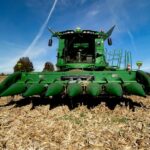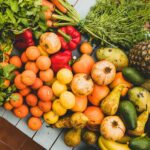Nestled amidst the bustling metropolis of the San Francisco Bay Area lies a burgeoning movement that seeks to transform concrete jungles into vibrant oases of greenery and sustenance. Urban farming, once a niche practice, has gained momentum in recent years as residents and communities strive to reconnect with the land, cultivate local food sources, and foster environmental stewardship. In this blog post, we’ll explore the evolution of urban farming in the Bay Area, highlighting its growth, impact, and the innovative initiatives shaping its future.

- A Growing Movement:
- The Bay Area, renowned for its progressive culture and environmental consciousness, has become a fertile ground for urban farming initiatives. From backyard gardens to rooftop farms, community plots to commercial enterprises, urban farmers are reclaiming vacant lots, rooftops, and underutilized spaces to cultivate fresh produce and promote sustainable living.
- Organizations like Urban Adamah in Berkeley and Hayes Valley Farm in San Francisco have pioneered urban farming practices, offering hands-on education, community outreach, and volunteer opportunities to engage residents in the food-growing process and reconnect them with the natural world.
- Innovative Approaches:
- In response to limited space and high land costs, Bay Area urban farmers have embraced innovative techniques such as vertical farming, hydroponics, and aquaponics to maximize yields and minimize environmental impact. Vertical farms like Plenty and Freight Farms utilize advanced technology and controlled environments to grow crops vertically, allowing for year-round production and efficient use of space.
- Community-supported agriculture (CSA) programs and farmers markets play a vital role in connecting urban farmers with consumers, providing access to fresh, locally grown produce and fostering community relationships. Initiatives like the East Bay Permanent Real Estate Cooperative (EBPREC) are working to secure land and resources for urban farming cooperatives, ensuring long-term sustainability and equity in food production.
- Environmental Benefits:
- Urban farming offers numerous environmental benefits, including reduced food miles, improved air quality, and enhanced biodiversity. By growing food locally, urban farmers minimize transportation emissions and carbon footprint associated with conventional agriculture, while green spaces mitigate urban heat island effect, absorb carbon dioxide, and provide habitat for pollinators and wildlife.
- Sustainable farming practices such as composting, rainwater harvesting, and agroforestry further enhance the ecological resilience of urban farms, promoting soil health, water conservation, and carbon sequestration in urban environments.

- Community Resilience:
- Beyond its environmental impact, urban farming fosters social connections, strengthens community resilience, and promotes food sovereignty. Community gardens serve as gathering spaces for neighbors to share knowledge, resources, and cultural traditions, while urban farms provide employment opportunities, skills training, and access to fresh, nutritious food in underserved communities.
- Initiatives like Planting Justice in Oakland and City Slicker Farms in West Oakland exemplify the transformative power of urban agriculture in addressing social inequities, empowering marginalized communities, and building local food systems that prioritize health, justice, and sustainability.
Conclusion: As the Bay Area grapples with the challenges of rapid urbanization, climate change, and social inequality, urban farming emerges as a beacon of hope and resilience. Through its innovative practices, environmental stewardship, and community engagement, urban farming not only nourishes bodies but also nurtures the soul of the city, fostering connections between people, land, and food. As we continue to cultivate green spaces and sow the seeds of change, let us embrace the transformative potential of urban farming to create a more sustainable, equitable, and resilient future for all.






